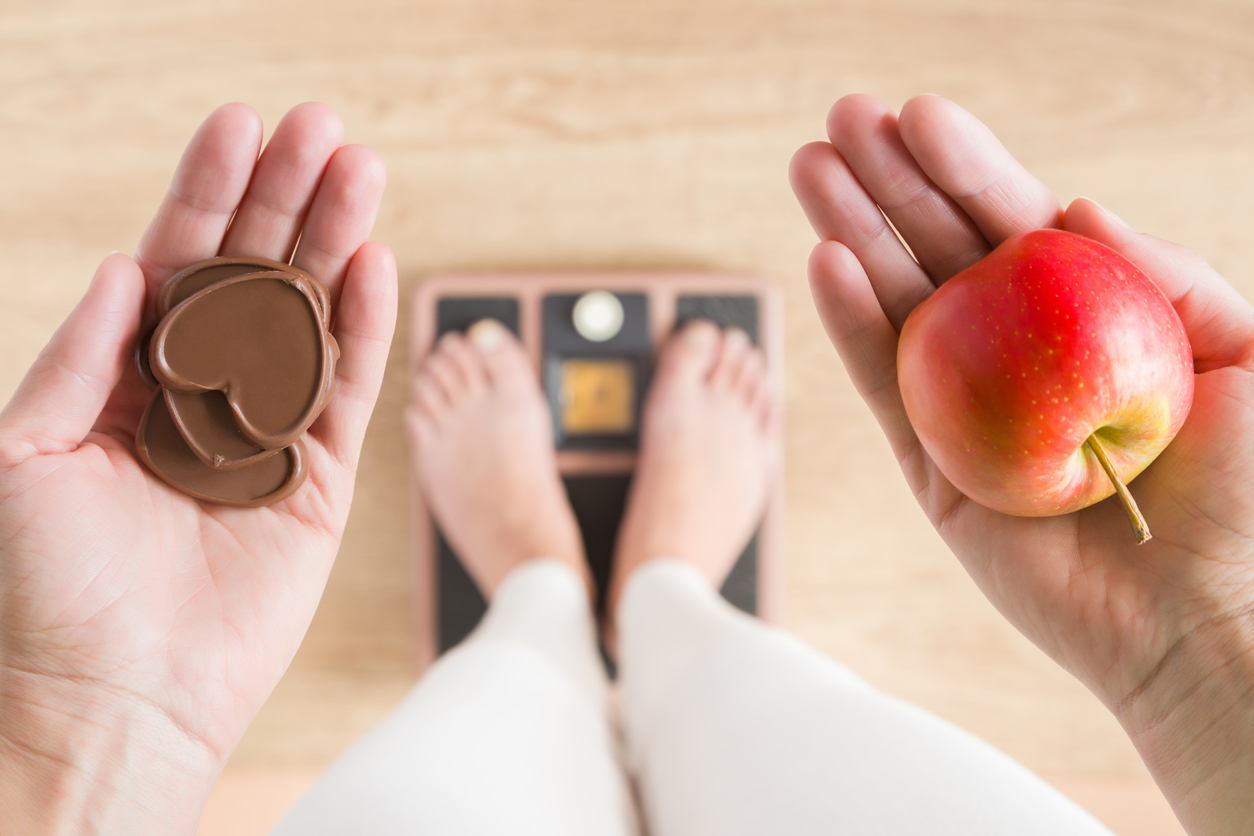Congratulations! You want to align your lifestyle choices with your vision of your best self. That’s also called habit change—and you’re ready to do it.
Let’s not sugar coat the truth. Making positive change can be challenging. Your brain is in charge, and it will always default to the familiar. It enjoys the regular Netflix binges that include a pint of Rocky Road ice cream. That’s because your brain is designed to be efficient—to expend as little energy as possible to do its work.
When you regularly repeat a behavior, your brain memorizes it. If you engage in that behavior enough times, your brain creates a neural pathway to enhance its efficiency. Awesome, right? Until you decide to make a change and your brain resists. But you can stand up to your brain. When it declares that you can’t change, challenge it by saying, “Watch me!”
Adopting that attitude, and taking the following steps, will have you realizing that good-for you changes are entirely possible—and making them can be easy and fun.
Make a Decision and Commit
 All of our habits are choices. Decide on the new behavior you want to create and commit to practice it 100 percent of the time until your brain considers it familiar. Want to be the woman who bicycles daily? Or the one who snacks on carrot sticks, not cookies? You can be her. Just make a decision and stick to it.
All of our habits are choices. Decide on the new behavior you want to create and commit to practice it 100 percent of the time until your brain considers it familiar. Want to be the woman who bicycles daily? Or the one who snacks on carrot sticks, not cookies? You can be her. Just make a decision and stick to it.
Every. Day.
Life happens, so be kind to yourself if you slip up or miss a day. Be sure to get back on track quickly, and commit to never miss twice.
Why this step is important: Most of us commit to trying a new habit until it no longer feels good to do so. Realizing the power of good habits is worth a little discomfort. Dedicating yourself to practicing your new behavior no matter what is the hardest choice, but it eliminates any other options, setting you up for inevitable success.
Identify Your Motivation
Decide whether you are truly committed to the process or if you just like the idea that your new habit is a possibility. Write down 3 reasons that your new habit is exciting for you, then identify why each one makes you feel that way.
Why this step is important: Reminding yourself why you want to make a lasting change will boost your willpower. Your “whys” will also motivate you when you encounter resistance along the way.
Set Small Goals
Your small goals should be so easy that you can accomplish them with little motivation. Decided you want to walk for 30 minutes during your lunch hour? Begin by walking three minutes the first day.
Three minutes?! Yes.
Why this step is important: It’s exciting to set big, bold goals, and even more thrilling to reach them, but your small, obtainable goals will be the stepping stones that lead to your ultimate success. Immediately trying to create a big change can trigger resistance in your brain. Trick it by sneaking in a small change, then build on that by increasing it in incremental ways at a pace you can sustain. This gives you easy wins and a pleasurable path to your new habit.
Prepare for Success
Want to develop the habit of making an energy-boosting smoothie for breakfast every day? Have the ingredients on hand and ready so you’re not tempted to choose the toaster strudel instead. Prepare in advance to make your new habit a no-brainer. Take action ahead of time that will make it easy and convenient to accomplish your daily goal.
Why this step is important: If it’s difficult and time consuming to take an action, it’s less likely that you will.
Visualize and Affirm
 Repeatedly visualize yourself practicing your lifestyle change. See yourself hiking at the lake on Saturdays. Imagine the warmth of the sun on your face, the glimmer of light on the water, the soft ground beneath your feet as you take each step. Mentally rehearse the experience as if it was real.
Repeatedly visualize yourself practicing your lifestyle change. See yourself hiking at the lake on Saturdays. Imagine the warmth of the sun on your face, the glimmer of light on the water, the soft ground beneath your feet as you take each step. Mentally rehearse the experience as if it was real.
Supplement your brain training by creating an affirmation that you continually repeat to yourself. For example, tell yourself, “I get up early and do yoga each morning.” Repeat those words often, especially before you fall asleep every night.
Why this step is important: By frequently repeating your affirmation and visualizing your new habit, you dramatically increase the speed at which your unconscious mind accepts that behavior and it becomes the default setting in your brain.
Manage Your Expectations
Persist, yet be patient—this is perhaps the most critical skill to practice when you’re making a lifestyle change. Common wisdom says it takes 21 days to create a habit. However, research has revealed that, on average, it takes 66 days for a new behavior to become automatic. Among study participants, that timeline varied from 18 to 254 days, depending on the behavior sought, the person and their circumstances, so patience is key.
Why this step is important: With persistence, your new habit will become a natural inclination. You’ll realize the power of good habits when you begin to feel uncomfortable when you don’t practice your new behavior.
Reward Yourself
Celebrate your victories! Reward yourself for practicing your new habit. Getting the hang of cooking healthier dinners? Treat yourself to a meal kit service whose menu choices align with your nutrition goals.
Why this step is important: By rewarding yourself, you reaffirm and reinforce your lifestyle change with positive consequences. Soon your brain begins to associate the pleasure of the reward with your new habit, causing you to look forward to the experience.
Dedicating yourself to this small-step process can lead to big, lasting changes. Imagine the vibrant life you can create for yourself by embracing the power of good habits, then get to work. Your best self is waiting!







